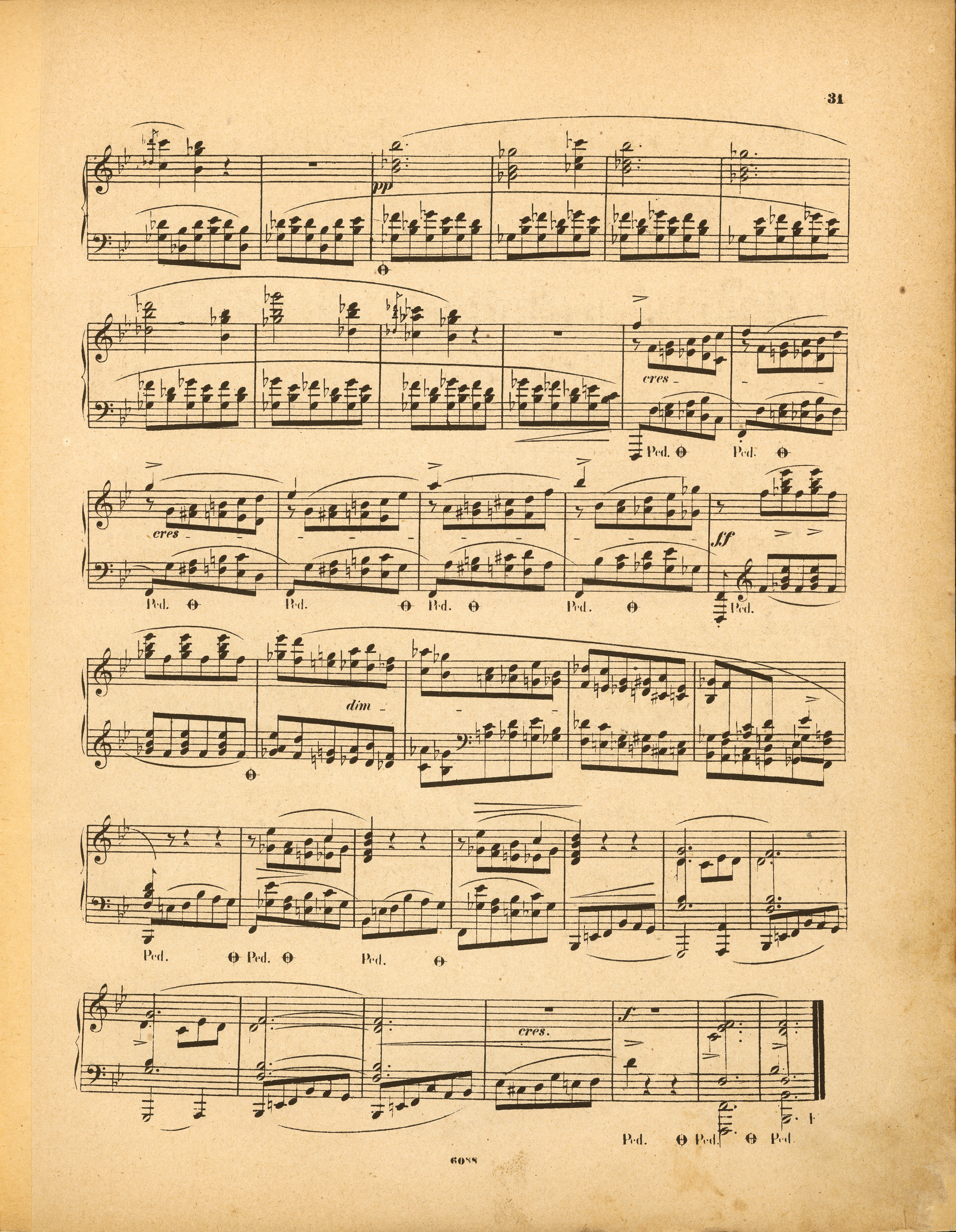



It can be seen that these bars were corrected a few times in A; the corrections concerned the notation of the first R.H. chords:
- Bars 50-51 are entirely crossed out and rewritten in the same line. In both versions one can see crossings-out of earlier versions of notation of the 1st chord in b. 50, in which it is also the b
 note that is a minim. The b
note that is a minim. The b note was a minim also in the crossed-out version of that chord in b. 52.
note was a minim also in the crossed-out version of that chord in b. 52. - In the crossed-out chord of the crossed-out version of b. 50, there are extension dots next to the g and g1 minims, while the chord in b. 51 is written in crotchets (without rests).
- At the end of b. 51, one can see a crossing-out at the pitch of d1 – it was most probably a crotchet rest. The reason it was removed could have been the inability to complete the rhythmic values of the voices accompanying the alto melodic part with one rest – it would not be clear which voice it should apply to, while a detailed notation would require entering three rests, which would interfere with the Chopinesque commitment to simplicity of notation.
According to us, it is unclear whether Chopin wanted the discussed fragment to include 3 bars, or whether it was initially supposed to include 5 bars:
- Chopin could have started correcting b. 50-51 before writing further bars; he could have considered the entire first version to be illegible, hence he rewrote it and then introduced corrections. In such a scenario, the number of bars does not change.
- However, it is likely that Chopin wrote all the visible bars right away (2 more than in the final version), started correcting the notation of the first chords and eventually considered repeating b. 50-51 to be superfluous and crossed them out. This scenario is supported by similar – insofar as it can be determined – corrections in three G minor chords at the beginning of. 50 (crossed-out), 50 (not crossed-out) and 52.
In the face of works on the rhythmic notation of those chords, we consider the revision introduced in GE2 to be contrary to Chopin's intention.
Compare the passage in the sources »
category imprint: Differences between sources; Corrections & alterations; Source & stylistic information
issues: Corrections in A, GE revisions, Deletions in A, Accompaniment changes, Changed phrase length
notation: Rhythm

